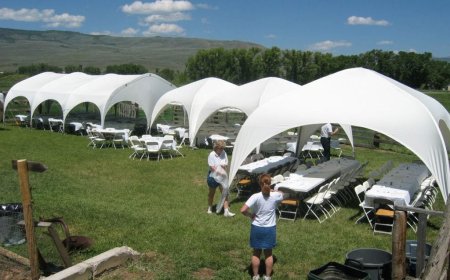How to Practice Filmmaking and Improve Your Skills | Master the Craft
Discover how to practice filmmaking effectively with proven tips to boost your skills. Try this expert-approved method today!

Filmmaking is a skill that blends creativity, storytelling, and technical know-how. Whether you're a beginner with a smartphone or an advanced user of DSLRs and editing tools, consistent practice is the key to improving your craft. Understanding the fundamentals and building from them sets a solid foundation for growth. More than just filming, it's about refining your ability to express stories visually and emotionally.
Mastery doesnt come overnight, and like any art form, it requires dedication, observation, and repetition. You dont need a big budget or a Hollywood crew to start your journey. What you truly need is commitment, a clear plan, and the willingness to evolve with each project. Rezaid film, for example, offers aspiring creatives a platform equipped with the tools to make this journey smoother and more efficient.
Start Small and Learn the Basics
Before diving into complex projects, it's essential to understand the fundamental aspects of filmmaking. These include framing, composition, lighting, sound, and editing. Each of these elements has a profound impact on the final product, and mastering them will ensure your content stands out.
Working on short scenes or even 30-second clips can be immensely helpful. Focus on one element at a time. One week, you might study how lighting affects mood; the next, you might experiment with handheld camera movement to build tension.
Understand Your Equipment
Knowing your gear is critical, regardless of whether its a phone camera or a professional DSLR. The better you understand your equipment, the more creative freedom you gain. Explore every setting, from manual focus to frame rates. Dont just rely on auto modestake control of your settings and push the limits of your tools.
Youll find that even simple changes in exposure, aperture, or ISO can drastically change the atmosphere of a shot. Understanding these subtleties gives you the power to turn a simple scene into something cinematic.
Practice with Real Projects
One of the most effective ways to grow as a filmmaker is to work on actual projects. Start with passion projectsfilm a friends short story, shoot a local event, or document a personal experience. These projects give you the chance to apply everything youve learned and identify areas for improvement.
Remember, each project will teach you something new. Whether it's managing time on set, capturing better audio, or improving your scriptwriting, every mistake is a valuable lesson.
Collaborate With Others
Filmmaking is a team sport. Collaborating with other creatives not only improves your skill set but also exposes you to different perspectives and workflows. Whether its working with actors, sound designers, or editors, every interaction can expand your understanding.
"Filmmaking is the ultimate team sport. You need people who are just as passionate as you are to make a story come alive." Ava DuVernay
Besides growing your skills, collaboration also builds a network that can lead to more opportunities and valuable feedback.
Document Your Progress
Keeping track of your filmmaking progress helps you understand how far you've come. Maintain a journal or video diary where you reflect on each project. Note what went well and what needs improvement. Over time, youll start seeing patterns and discover the specific areas that need more attention.
By observing your evolution, you gain confidence and motivation to tackle more challenging projects. This habit of reflection is especially useful when revisiting older projects, as it helps measure growth more accurately.
Focus Keyword Usage
A crucial point to remember in your journey is the significance of consistent application and learning. Break down complex scenes into manageable shots and recreate them to understand the techniques behind them. Watch your favorite films not just for enjoyment, but as educational materialpause, analyze, and replicate what you see. It is through this process that you begin to master how to practice filmmaking effectively, honing both your creative instincts and technical abilities.
Build a Practice Routine
Having a structured routine can help you stay consistent and focused. Consider setting aside regular time slots each week dedicated to different aspects of filmmaking.
Include these areas in your weekly practice plan:
-
Scriptwriting exercises
-
Storyboarding short sequences
-
Practicing B-roll capture techniques
-
Short editing challenges using free footage
-
Recording and syncing audio
Working through a routine like this helps make progress measurable, and youll naturally develop stronger instincts for visual storytelling.
Use Resources and Learn Continuously
Learning never stops in filmmaking. Technology evolves, styles change, and new tools become available. Stay updated by consuming tutorials, participating in webinars, and reading filmmaking blogs or watching breakdowns.
Useful resources to expand your skills include:
- Online courses from MasterClass, Skillshare, or Coursera
- YouTube channels like Film Riot and DSLR Video Shooter
- Community feedback on platforms like Vimeo or Reddit
- Film festivals and local workshops for networking and exposure
These resources not only provide knowledge but also motivation and inspiration from others who are on the same path.
Conclusion
Improving your filmmaking skills is a journey of constant learning and practice. It involves a mix of creativity, technical skills, collaboration, and most importantly, persistence. Whether youre just beginning or already have a few projects under your belt, your growth depends on how frequently and deliberately you practice.
By embracing small, meaningful projects, collaborating with others, and staying curious, youll see your storytelling skills elevate to new heights. And as you evolve, so will your visionbecoming more refined, impactful, and compelling.
Never underestimate the power of showing up consistently, because every minute spent behind the camera is a step closer to cinematic mastery.







































